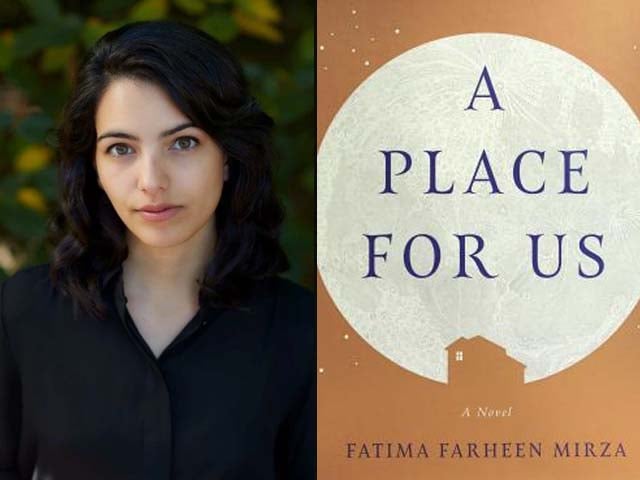
What is particularly inventive about the narrative was how the story unfolds through the point of view of a host of different characters.
Raw and poignant, A Place for Us beautifully sheds light on familial love
Not feeling at home with your own family is a tragedy, one which Mirza renders beautifully on the page.
It had been some time since I cried while reading a book. And A Place for Us changed that. Fatima Farheen Mirza’s dazzling debut novel tells the story of a South Asian Muslim family living in America.
The family members find themselves torn between discovering their individual selves, while also grappling with their respective roles within the family. As a result of living in a deeply polarised American society, the characters in the novel are in a constant battle with themselves, their family and the world around them, each looking to find relevance, liberty and peace.
Interestingly, one of the main talking points with regards to this book has been Sarah Jessica Parker's involvement in its publication. The Sexy and the City star chose Mirza’s novel as the first book to be published under the Parker imprint for Hogarth publications.
A Place for Us begins at the wedding celebrations for the family’s eldest daughter, Hadia, in California. The occasion, however, is made all the more special due to the youngest child and only son, Amar, coming back home after having fled three years ago. The story thus revolves around the circumstances which led to Amar’s estrangement from the family and the narrative is interspersed with memories from the parents, Rafiq and Layla, and their children, Hadia, Huda and Amar.
What I found particularly inventive about the narrative was how the story unfolds through the point of view of a host of different characters, with the same memory often being shown through different perspectives. We are thus able to see how the same moment impacted each member of the family in a wholly unique manner.
Mirza beautifully brings to light the nature of familial love, which can be limitless and unwavering, but also envious and petty. The depiction often seems like that of a typical diaspora family, with parents trying desperately to instil both Muslim and South Asian values in their children and encouraging them to speak their native language at home. The author explores the subtle dynamics of the household, from the siblings safeguarding each other’s secrets, to the family following Islamic rituals and customs like fasting in the month of Ramazan and observing Muharram.
But that’s just the feel-good part of the book. What is heart-wrenching, poignant, and particularly relevant for our part of the world is how Mirza explores the pressure parents tend to put on their children. South Asian parents often have their own expectations from their children, insisting that they must be obedient, unquestioning Muslims and top performing students who go on to become either doctors, engineers, lawyers or entrepreneurs. The novel attempts to illuminate how pitting children against one another, failing to acknowledge past mistakes and the inability to express love can tear a family apart.
Hence, when Amar leaves, a part of Rafiq and Layla’s souls also leaves. But by then it’s too late to mend their broken ways. Perhaps the saddest thing in the world is to see your child leave you because of your own mistakes. Not feeling at home with your own family is a tragedy, one which Mirza renders beautifully on the page.
And so, I cried when the family was torn apart because of secrets, betrayals, and the smallest of estrangements which could no longer be brushed under the carpet. The last section of the book, told from Rafiq’s perspective, is absolutely devastating. The feelings of an emotionally-reserved father, who falls prey to his own shortcomings, are expressed in a remarkably raw and affecting manner, which is quite an achievement for a debutant writer.
Mirza has done a truly commendable job at penning down the story of a family over decades, and it is no surprise that her novel has received great critical acclaim. The recurrent themes of children trying to find their own identity and parents trying to protect and understand their children resonate at a deep level. After this stellar debut, one hopes that Mirza is able to pack the same amount of authenticity into her next novel, one which I am eagerly awaiting.




COMMENTS
Comments are moderated and generally will be posted if they are on-topic and not abusive.
For more information, please see our Comments FAQ